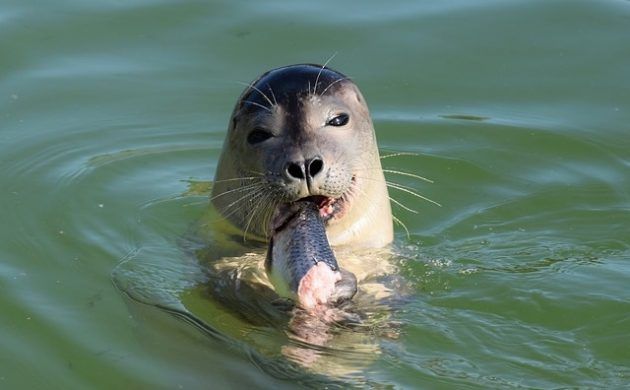Wolves get a bad rep. Not only does our language reveal we fear them – from the wolf in sheep’s clothing to lone wolf – but we also manage to associate them with lying (cry wolf), poverty/hunger (wolf at/from the door) and sexism (wolf whistles).
Not like seals. They’re cute and cuddly and clap their hands when we throw fish at them. Give them a ball and they’ll juggle it. A wolf would only burst it.
Falsely accused
So it was no surprise to learn that a pair of wolves in western Jutland have been accused of carrying out 65 attacks on domestic animals, and that research by DR confirms the blame can only be laid at their door in 15 of the cases.
In the other 50 cases, the culprit turned out to be either foxes or dogs, while in several cases the animals died of natural causes, the environment protection agency concluded.
Nevertheless, shepherds remain worried. One of them, who is awaiting the results of a DNA test on his dead sheep, questioned whether a 120 cm fence erected in Holsterbro to keep the wolves out is high enough.
Complete cull needed
Seals, meanwhile, are guilty of all the crimes they’re accused of – so much so that the sustainable fishing-loving ministry has given permission to shoot 40 of them on occasion.
Particularly prevalent in the Wadden Sea, grey seals are the biggest nuisance. Weighing up to 300 kilos, they eat at least five kilos of fish a day. Often they have a tendency to rip up the gill nets favoured in coastal waters and eat parts of the fish they like best.
On occasion, they can even eat other seals – the common or harbour variety – and porpoises. While numbers have risen by 10 percent in the Wadden, there are 50 percent more in the Danish section: some 221 at the last count. And they are now being seen in inland waters.
One fishermen’s association advocates a complete cull.
The comeback kings
Of course, there’s never any guarantee they won’t return. Just ask the bluefin tuna and stag beetle.
Recently returned to Danish waters after a decades-long absence, an angler fetched a record price at auction for his 204 kilo bluefin tuna catch in Danish waters: 124,440 kroner.
Meanwhile Naturstyrelsen has confirmed that four stag beetles have been hatched in Dyrehaven Park just north of Copenhagen as part of a breeding program – the first appearance of Lucanus Cervus in Danish nature for 50 years.
The beetles, which spend the first four years of their five-year life cycle as larvae, can grow to almost 10 cm in length. Children everywhere are believed to be delighted at the prospect of one crawling up their leg.
Buzzing off, sadly
But not everything ends happily ever after. Just ask the nation’s bees.
Ben Woodcock from the British Natural Environment Research Council warns that the use of neonicotinoid insecticides, which treat seeds such as rape, are rapidly killing bees in Britain, Hungary and Germany, reports Ingeniøren.
The pesticides have a negative effect on both wild and honey bees, and when the bees are unhealthy to start with or are dependent on a monocrop diet, they are more likely to be affected.
The bees don’t die immediately but become disorientated, and so have difficulty surviving the winter.














